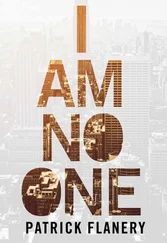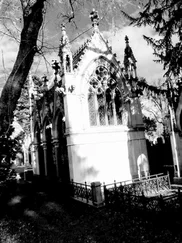What makes you think you can read me so well?
Because there aren’t that many white South Africans and we’re mostly all related. We’re probably distant cousins. I’d say you spent time in Cape Town but went to school somewhere in the Eastern Cape. Grahamstown?
Port Elizabeth , Sam said. It was unnerving to be so transparent.
Greg had come to New York to do a master’s in art history. When I go back I’m going to open an art gallery and sell to all the rich Europeans who come looking for authentic Africa , he said, making horns with his fingers and pulling a horror face. My parents say I should try to stay here . He raised an index finger and wagged it at Sam: ‘It’s just a matter of time,’ my father says, ‘before they have us all strung up from the trees my boy.’ So you see I have no choice. I have to go back to prove him wrong .
*
Sarah was presiding at the first club meeting Sam attended. At the end he approached her to sign up and pay dues for the year. These amounted to fifteen dollars, and even that felt like a stretch, but the club was the kind of thing he thought he should be doing to meet people. When he saw her smile with her eyes as well as her mouth he thought this was also a reason for joining. Her teeth were straight and she had thick, light brown hair and there was something wholesome and unmistakably American about her looks — as if she had woken up that morning on a farm and drunk a glass of milk fresh from a cow milked by her father, and eaten pancakes made from scratch by her mother. Her clothes were spotless and unrumpled. Later, when he learned she knew nothing about farms and that her father would have no idea what to do with a cow, Sam wondered what her childhood had really been like but didn’t know how to ask. Asking about Sarah’s childhood would only invite questions about his own.
When the members of the club weren’t meeting to listen to local poets or reading their own work, they were usually at bars on Bleecker Street or gathering at someone’s apartment. It was one of those nights — at the home of an exiled Somali poet who lived far into Alphabet City and walked with her keys poking out from between the fingers of her left hand, pepper spray at the ready in her right — that Sam first had time alone with Sarah. He knew that she was regarded as a rising star in the journalism department, that she was approaching the end of her masters programme, that she had already published articles in leading news magazines, and that she lived nowhere near the university. No one in the club knew where she lived because she had never invited anyone to her apartment. The two of them talked about Sarah’s thesis on American media coverage of the Iran-Contra scandal. As she spoke, moistening her lips by rolling them into each other and taking long slow sips from a red plastic cup, now and then popping a chip into her mouth, Sam began to feel that he needed her. He realized that she reminded him, strangely, of Laura.
My father spent time in Africa , she said, in the Foreign Service. He was in the Congo and Rhodesia in the Sixties, in South Africa, too — in the Seventies and Eighties. I think he spent quite a while in South Africa .
But you never went with him?
He always said the postings were too dangerous, so Mom and I always stayed in Virginia. I don’t know — maybe we could have gone with him, but I think he was too worried about our safety. He liked South Africa. He said it was a beautiful country. I can’t imagine what it must have been like growing up in such a dangerous place .
Even though terrible things had happened, Sam had never considered that the country as a whole was a dangerous place, any more than America was. He tried to make out the expression on Sarah’s face. She looked curious and preoccupied, but it could have been the light refracting through the glass lampshade, which patterned her face in a labyrinth of strong shadows.
As they spoke, Sam thought more and more of Laura, seeing in Sarah the same energetic curiosity, but also a physical likeness, in her muscular limbs and sharp features, a bundle of angles and olive-blonde complexion, and eyes that were always active, when not scrutinizing Sam then taking in their surroundings, logging everything and everyone around them. If she was interested, Sam intuited, if she smelled a story, then this was a woman who wouldn’t stop until she understood everything about a person, until she discovered the truth.
We wake to the sound of birds, a jungle cacophony like nothing I’ve ever experienced, not in Cape Town or Beaufort West or Grahamstown. Along with the hadedas, which are familiar to me, there are grey loeries that look as prehistoric as the ibis and make a blood-chilling cry like a baby being strangled.
Sarah runs across the patio to the garden cottage first thing this morning, starting research on a story about American oil companies in Angola. The pool is tempting but I know I have to get to work. We say goodbye for the day, I implore Sarah to be careful and not let anyone in, and she reminds me to remain calm. As I pull out of the drive and watch the gate close behind me, a woman approaches on foot, hand-woven baskets stacked on her head and grass whisks tied to her body, looking as though she’s just arrived from some rural area.
As hectic and congested as Cape Town traffic can be, it has a kind of fluid logic that makes sense to me. I know its neighbourhoods and landmarks, its energy and codes. But Johannesburg has its own aggressive rules and an unrelenting pace that leaves me in a cold sweat, even with the satnav voice issuing constant directions to change lanes, to turn in so many metres, to watch out for speed cameras. By the time I arrive at the university I feel like I need to be sedated.
The faculty has arranged a parking space for me in the garage beneath Senate House, which on the outside looks like a late-Soviet grand hotel. Inside it’s an Escher nightmare of lifts and staircases and galleried walkways that never meet up in the way I expect they should. After losing myself twice I finally arrive at English Studies where the administrator tells me I need to go to another office to fill out paperwork, and then another office after that to get my staff ID card. An hour and a half later I return with the ID and requisite paperwork and no memory of how I got where I went. The department administrator shows me to my office, teaches me the code for the keypad, and explains that I must always remember to deactivate the silent office alarm when I arrive or the security services will be dispatched to investigate.
Left alone in the office, which is bare except for a desk, a chair, an empty bookcase, a filing cabinet, and a computer, I download all the recordings of my interviews with Clare and the scans of her manuscripts. My teaching duties won’t begin until February, and they’ve given me a light load for my first semester, but I intend to work on the book here at the office, even though the house, which offers the distractions of the pool and the television, is much more comfortable, particularly on a hot day like this. I spend the rest of the morning transcribing one of the interviews, and reply to Clare’s message, which arrived in the middle of the night.
*
Dear Clare,
I hope this finds you well. A French friend once told me that one should always begin a letter with a statement about, or wishes for, the recipient, rather than beginning with something self-reflexive. I’m afraid I’ve never quite mastered that. I do hope that you are well as you read this. How artificial it would seem to begin a letter with something like ‘Dear Clare, You will no doubt now be enjoying these long December days and preparing for the festive season.’ Perhaps it is something only the French can do — or do well — or perhaps it is the kind of form only truly possible in French. So instead I begin with myself, because it’s the only way I know how.
Читать дальше












